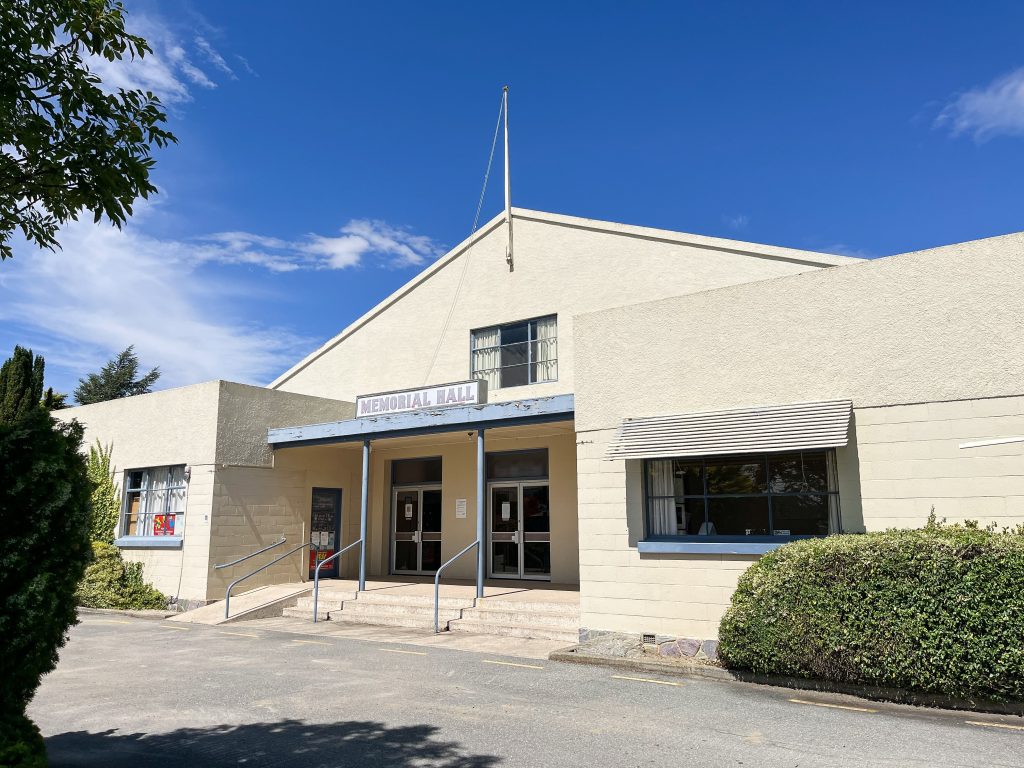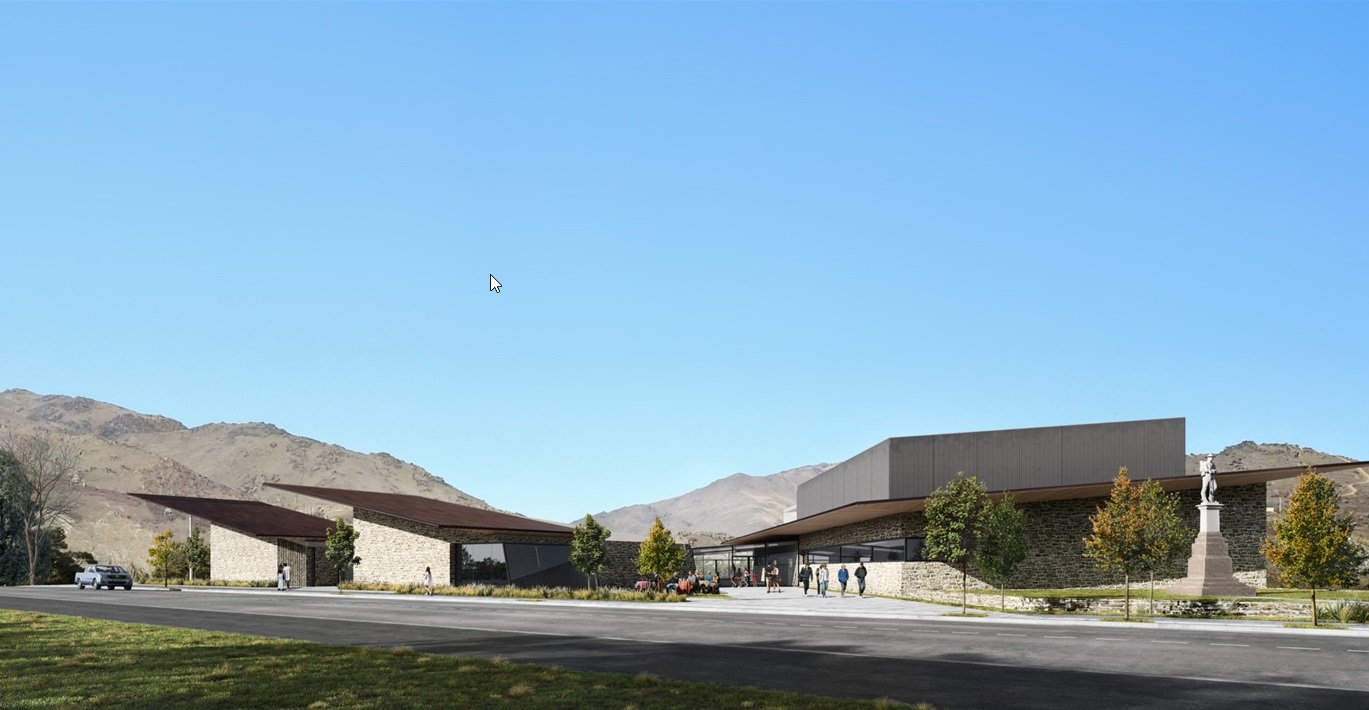The ageing Cromwell Memorial Hall is coming down.
At its meeting on Monday, the Cromwell Community Board unanimously agreed to demolish the hall as it moves towards the building of a new facility for the town.
Demolition of the hall is crucial to the forward movement of the project, allowing for further geotech and foundation assessment, which in turn will give a more accurate cost projection.
The project to replace the hall is one of the largest capital works projects the town has seen since the days of building the Clyde Dam.
However, any delays would likely see costs climb.
Estimated costs for the proposed Memorial Hall and Event Centre have already escalated to $42.8 million — up from the original $31.5 million budgeted for in the Central Otago Districts 2021-31 Long Term Plan.
That leaves a project shortfall of almost $11.35 million.
Cemetery Rd industrial development land sales to the tune of almost $7 million, plus $5 million from external funders, are anticipated to cover the gap.
Deputy mayor and community board member Neil Gillespie raised concerns about demolishing the existing hall when there was a significant funding gap overshadowing the project.
‘‘That’s a whole lot of risk for us to take on,’’ he said. Board member Wally Sanford said he felt the board should not hold off on demolition. ‘‘In my mind, a demolished building and bare piece of land is a better asset than the current building we’ve got,’’ he said. ‘‘We can’t ask for every last bit of detail until we’ve got all the recipe in place to actually get that — so it’s a risk and reward situation we’re in.’’
Cr Cheryl Laws felt demolishing the hall would maintain the momentum but she questioned the lack of projected operating costs and the impact on rate payers.

‘‘It’s great to want it but then you’ve got to pay for it,’’ she said.
Central Otago District Council acting chief executive Louise van der Voort said she understood the board had asked for operating expenses previously, however it was a ‘‘chicken and egg’’ situation.
The next steps were needed to determine the scope of the project, before operational costs and model could be determined.
‘‘Until we know what we are building, it’s pretty hard to say what we are operating and what we can get revenue from, so we need to progress it to this point.’’
In Cr Sarah Browne’s mind there was no question: ‘‘The hall has to go’’.
‘‘It has to — we’ve condemned it, we’ve been through this how many times, if we go back out there and say we’re pausing that demolition there will be uproar.’’
The board needed to make sure the developed design was still fit for purpose and then operating expenses would be clearer, she said.
The developed design and the commencement of detailed design were approved by the community board subject to additional reporting on proposed operation models and any rating implications.
Demolition is earmarked for October.





